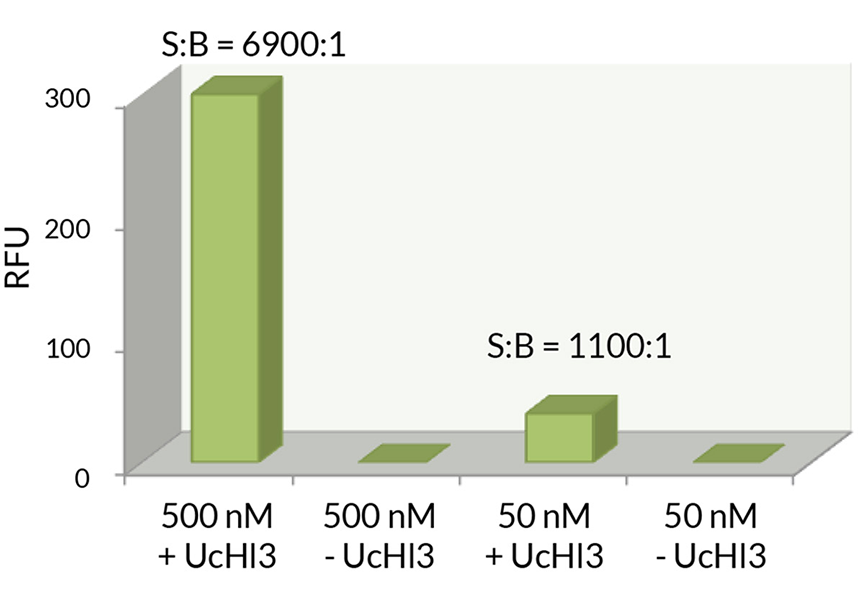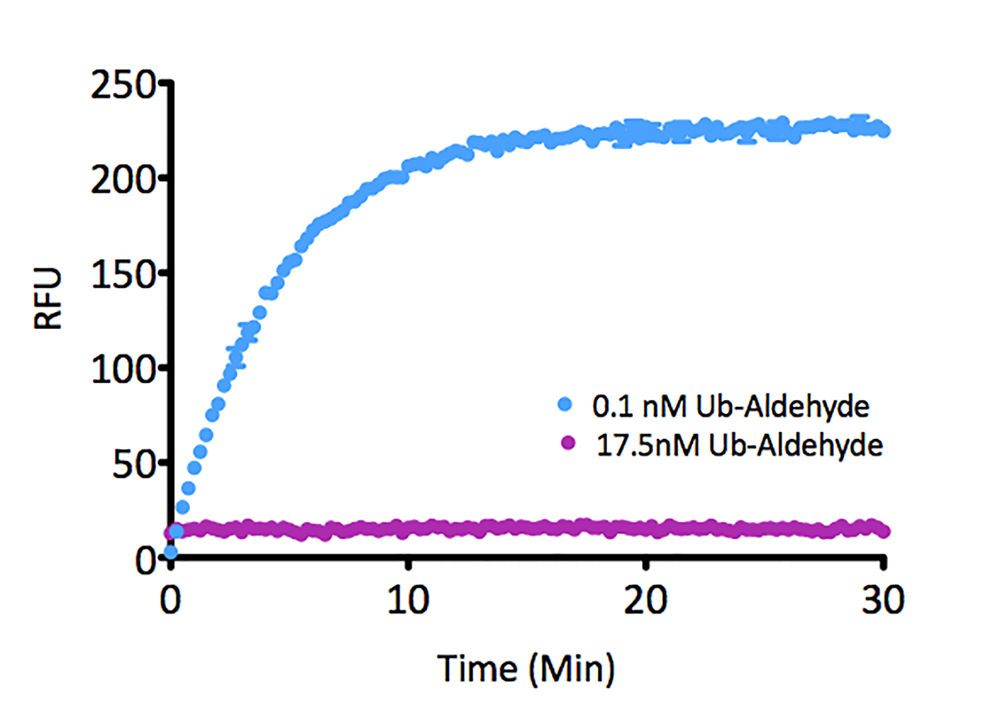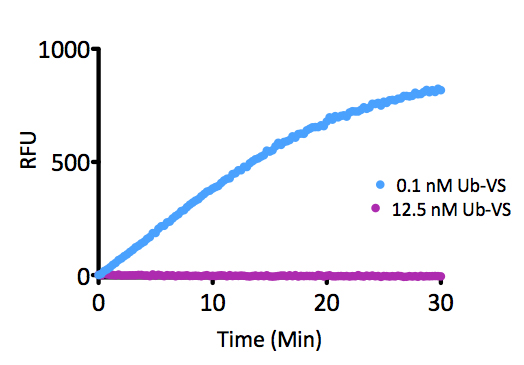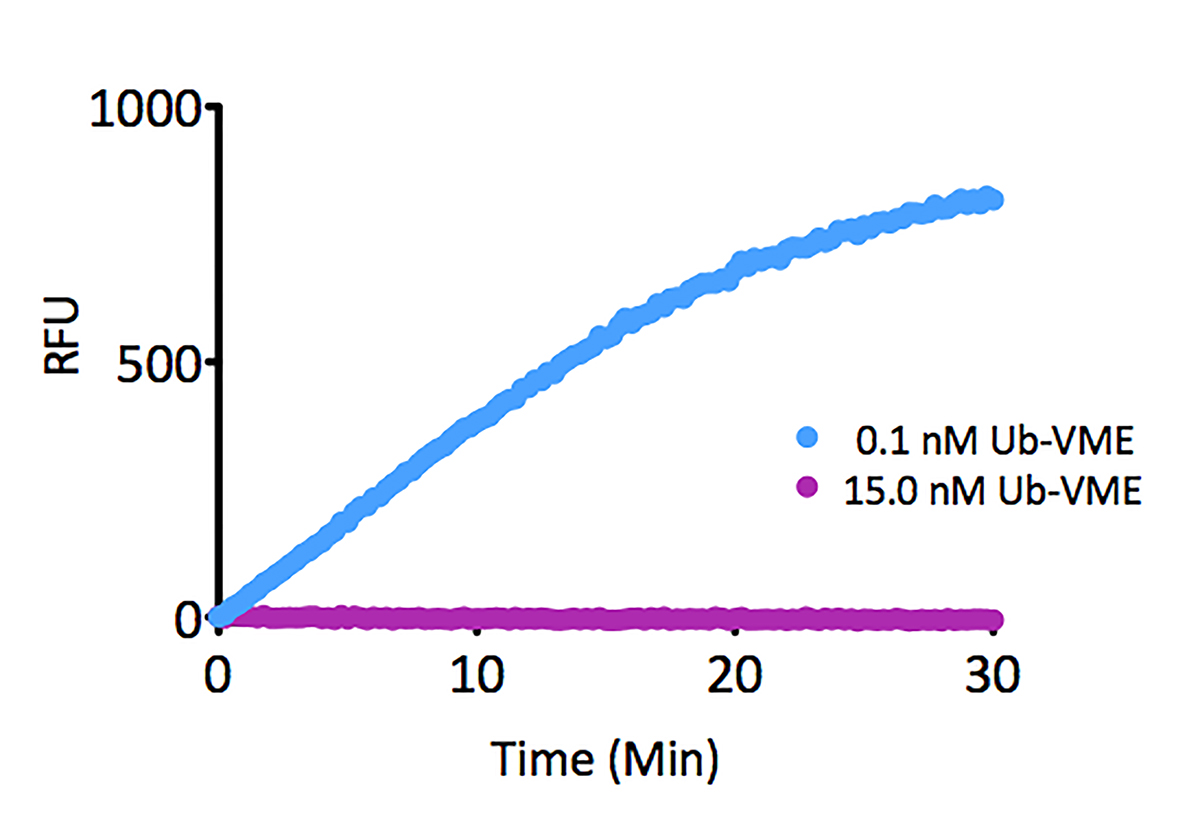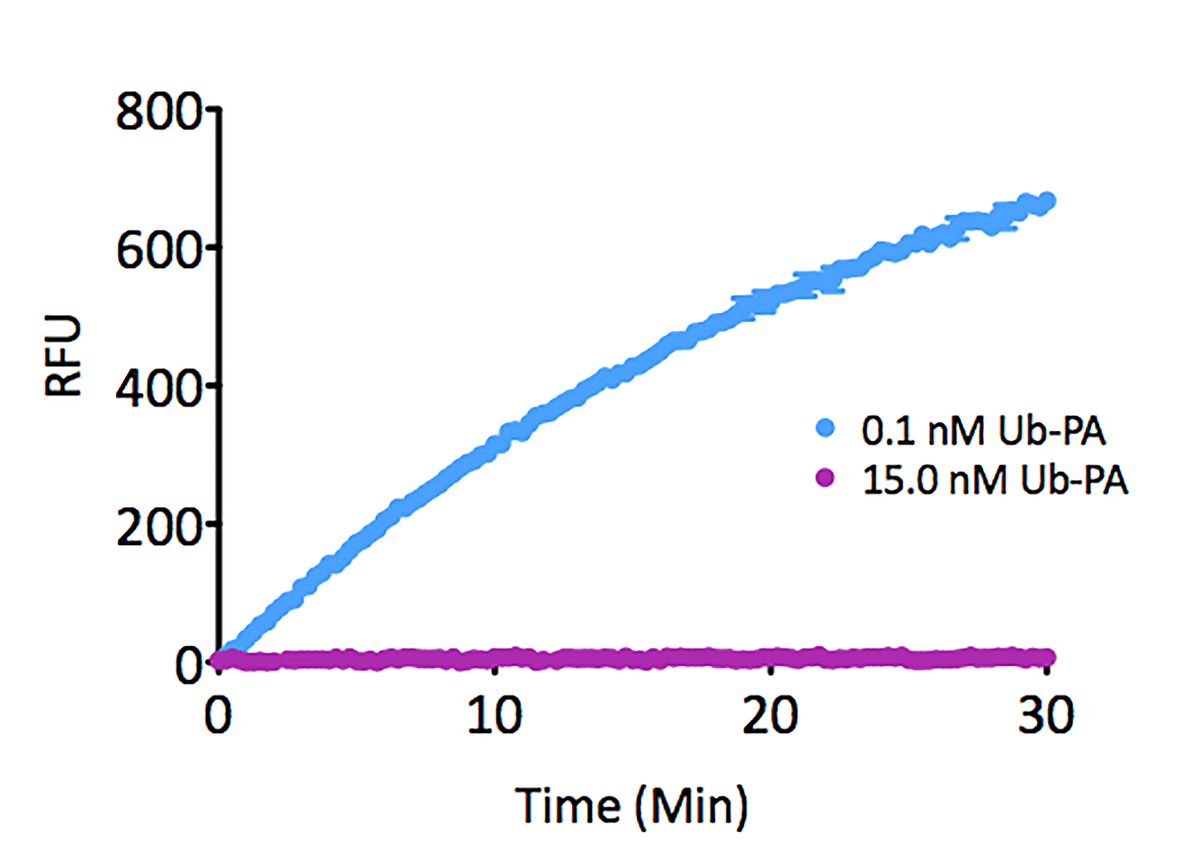Ubiquitin (human) (rec.) (6-FAM)
SBB-TR0016
Protein IDP0CG47
Product group Proteins / Signaling Molecules
Overview
- SupplierSouth Bay Bio
- Product NameUbiquitin (human) (rec.) (6-FAM)
- Delivery Days Customer2
- CertificationResearch Use Only
- ConjugateCarboxyfluorescin
- Estimated Purity>98%
- Gene ID7314
- Target nameUBB
- Target descriptionubiquitin B
- Target synonymsHEL-S-50, polyubiquitin-B, epididymis secretory protein Li 50, polyubiquitin B
- Protein IDP0CG47
- Protein NamePolyubiquitin-B
- Scientific DescriptionProtein. Human ubiquitin (aa1-76)is site-specifically conjugated to a single fluorescein (6-FAM) moiety. All lysines are available along with a fully functional C-terminus, making it ideal for chain formation using the E1-E2 and E3 conjugation cascade. Source: E. coli. Formulation: Liquid. In 50mM HEPES pH 7.5, 50mM sodium chloride. Purity: >98% (LCMS). Ubiquitin is a highly conserved protein that plays a major role in the ubiquitination pathway, which is conserved from yeast to mammals. Ubiquitination, the conjugation of ubiquitin to other proteins through a covalent bond between its C-terminal glycine and the epsilon-amino group of lysine residues or the alpha-amino group of an N- terminal methionine onto proteins is essential for many cellular processes primarily linked to protein degradation. This process involves three steps with specific groups of enzymes in an ATP depended manner, which are activation with ubiquitin-activating enzymes (E1s), conjugation with ubiquitin-conjugating enzymes (E2s) and ligation with ubiquitin ligases (E3s). - Ubiquitin is a highly conserved protein that plays a major role in the ubiquitination pathway, which is conserved from yeast to mammals. Ubiquitination, the conjugation of ubiquitin to other proteins through a covalent bond between its C-terminal glycine and the epsilon-amino group of lysine residues or the alpha-amino group of an N- terminal methionine onto proteins is essential for many cellular processes primarily linked to protein degradation. This process involves three steps with specific groups of enzymes in an ATP depended manner, which are activation with ubiquitin-activating enzymes (E1s), conjugation with ubiquitin-conjugating enzymes (E2s) and ligation with ubiquitin ligases (E3s).
- Storage Instruction-20°C,-80°C
- UNSPSC41116100
- SpeciesHuman

![Ubiquitin Activating Enzyme E1 [UBA1; UBE1] (human) (rec.) (His)](https://adipogen.com/pub/media/catalog/product/s/b/sbb-ce0058_finalgel.png)
